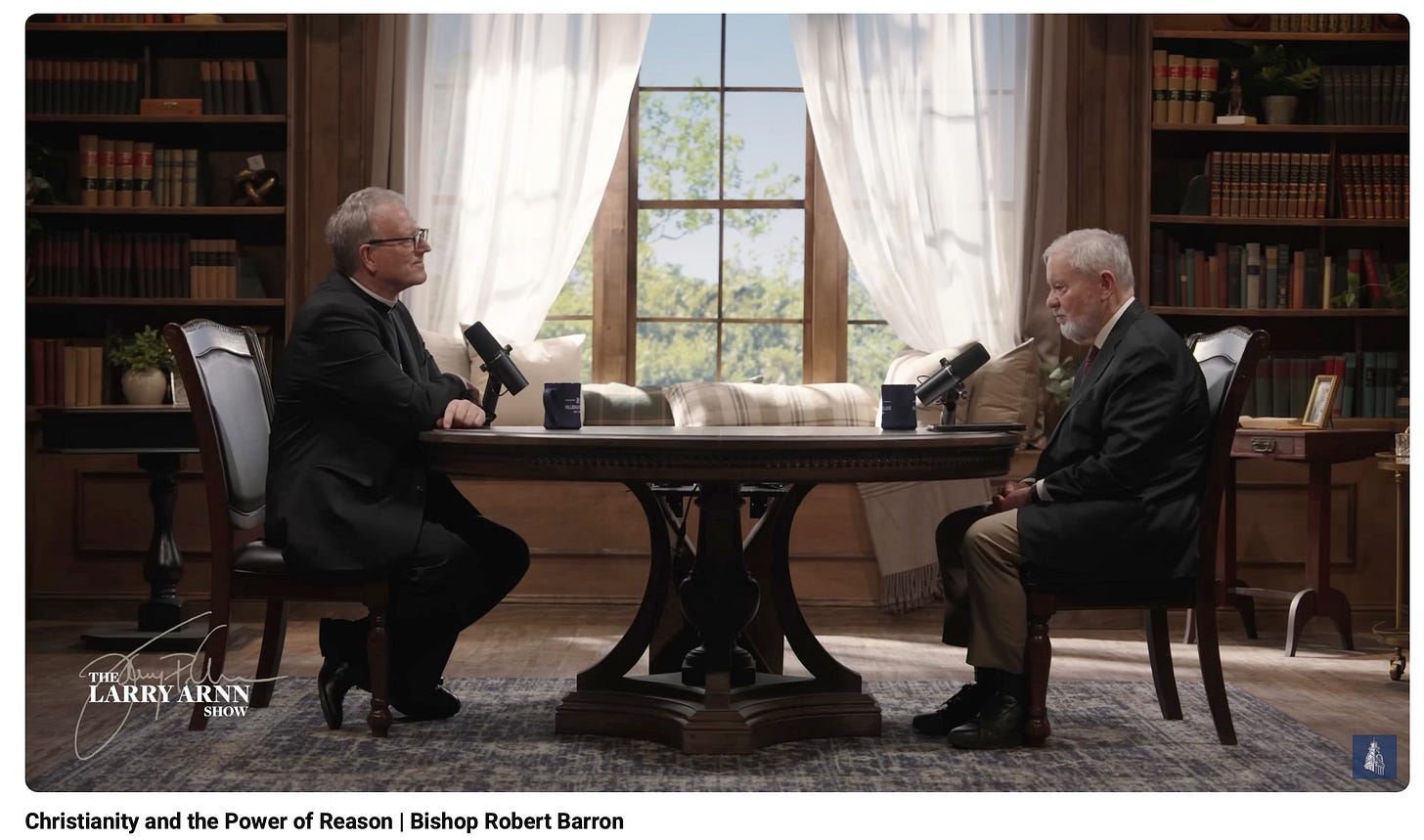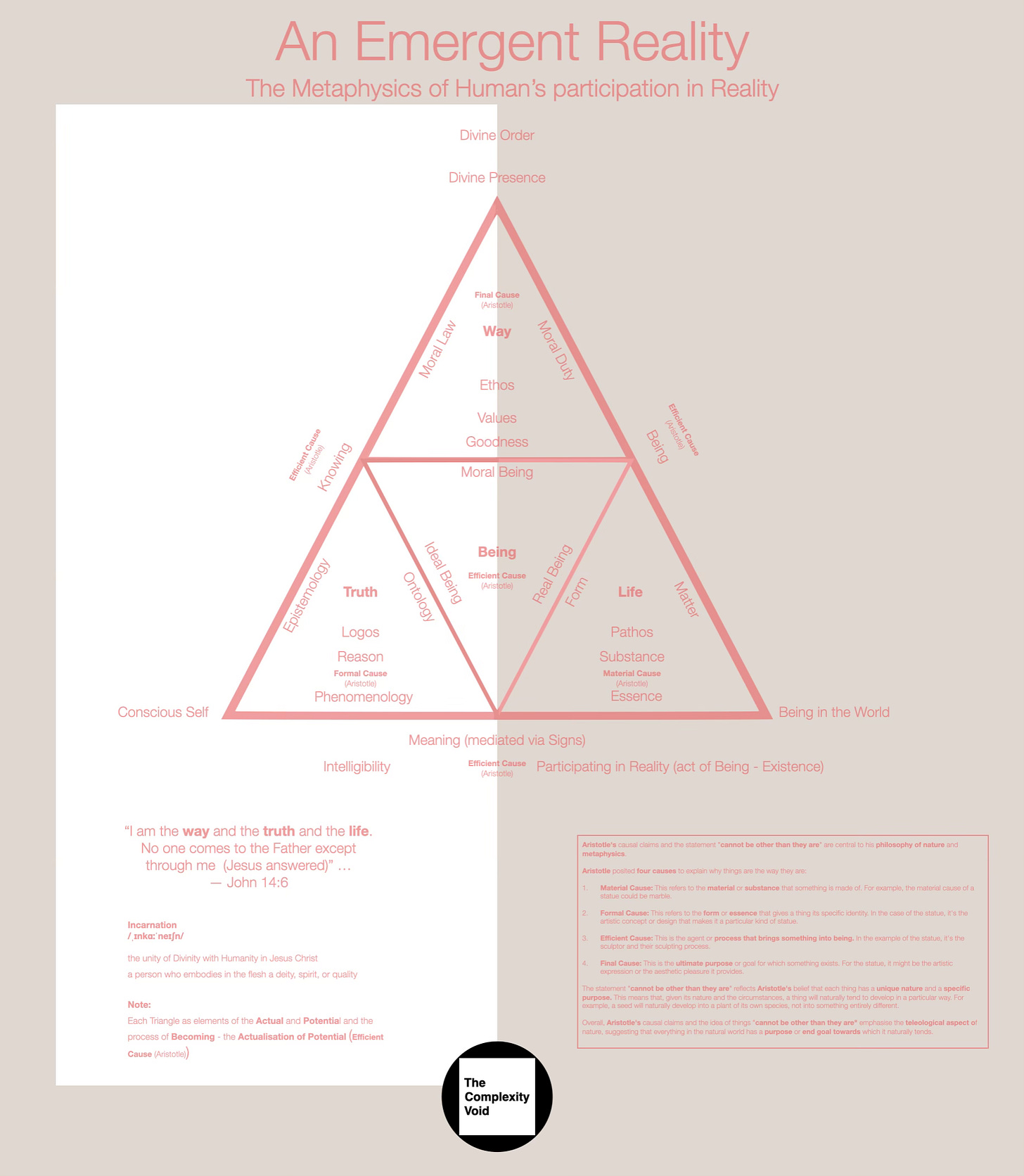Thomism Philosophy
The Order of Things and Triadic Metaphysical Structures of Reality
Carlo Crivelli, Public domain, via Wikimedia Commons
“Thomas Aquinas makes the decisive point when he says that God is not ens summum (highest being) but rather ipsum esse (the sheer act of Being itself). God is neither a thing in the world, nor the sum total of existing things; he is instead the unconditioned cause of the conditioned universe, the reason why there is something rather than nothing” …
- Robert Baron, Centered: The Spirituality of Word On Fire
[LINK]
The essence of Saint Thomas Aquinas’s Thomistic philosophy [LINK] is in his synthesis of faith and reason.
Refer - [LINK] - Augustine’s Trinity
A philosophy that harmonises Aristotelian metaphysics with Christian theology to articulate a comprehensive vision of reality anchored in Being (esse) [LINK] [LINK] and ordered towards God [LINK] as the ultimate end.
At its core, Thomism affirms that all created Beings participate in the act of Being, which is received from God, who alone is ipsum esse subsistens—subsistent Being itself (there can only be one [ LINK ]).
Aquinas emphasises the ontological nature of Being, “The real distinction” [LINK] between essence (what is) and existence (that is), and the intelligibility of the world [LINK] through the human intellect [LINK], which is capable of knowing truth because it reflects the Divine Intellect [LINK].
[LINK]
In this view, the pursuit of knowledge, particularly through natural reason and metaphysics [LINK], ultimately leads to the contemplation of God [LINK] [LINK], who is the source [LINK], sustainer, and final cause (Aristotle)[LINK] of all that exists.
[ LINK]
[ LINK ] - Christianity and the Power of Reason - Aristotle, Thomism Philosophy, Christian Theology, Order of Things and the Logos
Please also watch and read:
Tribal delusion in Academia: the Treason of the Intellectuals [LINK];
The current Age of Unreason [LINK] - and - Rejection of Truth and Common Sense [LINK];
The betrayal of our Intellectuals and Elites - The Marxification of Education [LINK];
Unhumans: The Secret History of Communist Revolutions [LINK];
The Knowledge Society - The Network Topology of Knowledge [LINK]; and
The Self-Destruction of the West - Nominalism, Materialism, Nihilism and Marxism [LINK].
Schism
"Triumph of the Franciscan Order" by Baciccio (1707) in the Basilica of Santi Apostoli in Rome, Italy” - Courtesy of Nick Castelli on Unsplash
Being as the Teological Ground of Divine and Natural Revelation
Photo by Marcus Dall Col on Unsplash












